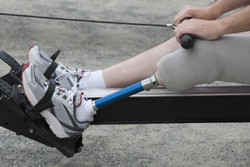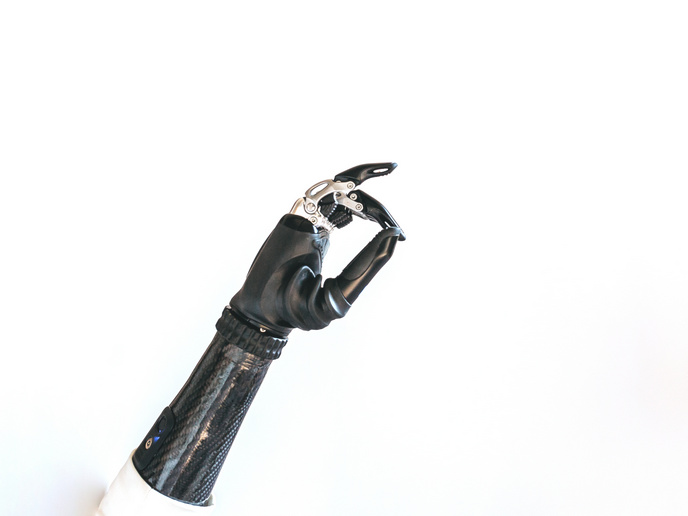Virtual titanium prosthetics
Metals are commonly employed materials in prosthetics. However, the alloying and processing applied to achieve the desired mechanical properties often introduce biocompatibility issues in host tissues. The incorporation of nanomaterials that combine strength, biocompatibility and ease of machining is a promising alternative. Research on the nano-structuring of titanium and its alloys is still in its infancy. Experiments using cell cultures, mechanical and in vivo testing are expensive, time consuming and also require extensive animal testing. Replacing these methods with accurate predictive models would provide a turbo boost to cost-effective development. Scientists working on the EU-funded project VINAT(opens in new window) developed a multi-scale virtual modelling environment. The team integrated descriptions at the atomistic, crystal and grain/microstructure levels through a variety of advanced computational methods. The virtual environment makes it possible to analyse the properties, strength and biocompatibility of nano-structured and ultrafine-grained titanium-based materials for medical implants. Investigators focused on three types of titanium-based materials — pure titanium, titanium–neobium alloys and superelastic shape memory titanium–nickel (Ti–Ni) alloys. Shape memory alloys are a novel class of metals that 'remember' their shape. Ti–Ni alloys show the most promise, for instance, for dental root canals and crowns, while nanotitanium is a promising material for implants. Using the modelling in conjunction with experimentation, researchers developed and tested a new high-strength, small-diameter implant from ultrafine-grained titanium. The 4-mm–diameter implant sustains the same load as the previous 7-mm–diameter one, making surgery easier even in difficult locations and minimising trauma to the patient. Scientists also developed a new processing route for material fabrication. VINAT outcomes are expected to significantly enhance the quality of life of the EU's ageing population by speeding the development process of titanium-based prostheses. The multi-scale modelling suite developed, covering both mechanical and biocompatibility virtual testing, will minimise the need for in vitro and in vivo testing. This in turn will increase the competitiveness of Europe's small and medium-sized enterprises working in the field.







